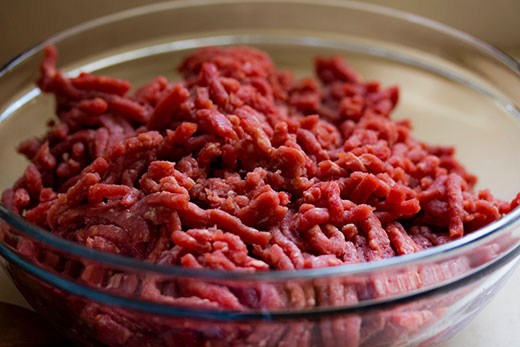
Ground beef at three fat levels is favored by consumers over plant-based alternatives for taste and flavor, among other areas, according to a study from Kansas State University.
Study: Consumers favor ground beef over plant-based alternatives
K-State meat scientist notes ‘stark’ differences
March 3, 2021
MANHATTAN, Kan. – Consumers overwhelmingly chose ground beef over plant-based beef alternatives in a multifaceted study now being reported by Kansas State University researchers.
Ground beef – offered with 10%, 20% and 30% fat -- was strongly preferred for taste and flavor over plant-based alternatives, and less than one-third of the respondents said they would buy the plant-based alternatives in the store or retail settings, according to K-State meat scientist Travis O’Quinn.
“The results are pretty stark,” O’Quinn said. “Our three ground beef products were highly desired by consumers. We didn’t witness many differences among the three fat levels we offered, but when we compared those to the ground beef alternatives, every one of the alternatives had a tendency to fall out (of favorability with consumers).”
Listen to an interview by Eric Atkinson with Travis O'Quinn on the weekday radio program, Agriculture Today
Consumers rated the plant-based alternatives as “extremely dry,” according to O’Quinn, and rated those products “very low” for flavor. In one test, only 18% of the consumers said they would be willing to buy the plant-based ground beef alternative.
O’Quinn said the researchers tested ground beef alternatives designed for retail and food service use, and another consisting of a traditional soy protein base.
The market for plant-based alternatives to all forms of beef has grown in grocery stores and some restaurants over the past six years. O’Quinn noted, however, that “not many of these products are tested or evaluated on how they really do stack up to ground beef.”
“There is a need to assess these products and determine whether the claims that they can substitute for beef or pork or sausage are (legitimate),” O’Quinn said. “We need to make sure that we fact check those claims to get a good idea of what the science says as it relates to how these products compare to the products they are trying to substitute for.”
The K-State study seems to indicate that they are not comparable, but rather separate food items.
“These ground beef alternatives are very different than ground beef,” O’Quinn said. “There’s nothing we can measure that puts it on the same level playing field with ground beef….not how they’re cooked, looked or taste.”
Some additional findings reported in the study include:
- Plant-based ground beef alternatives are more tender than regular ground beef. However, with ground products, that’s not necessary a good thing. The tenderness made the products more soft and less likely to hold together. Ground beef’s ability to stick together provides a texture that was more preferred by consumers.
- While ground beef patties tend to shrink when cooked, the plant-based alternatives stayed the same size – and in some cases even got somewhat bigger.
The team’s work, funded by the Kansas Beef Council, is included in the research report offered during the annual K-State Cattlemen’s Day, March 5. The report is available to view online through the K-State Research and Extension bookstore.

